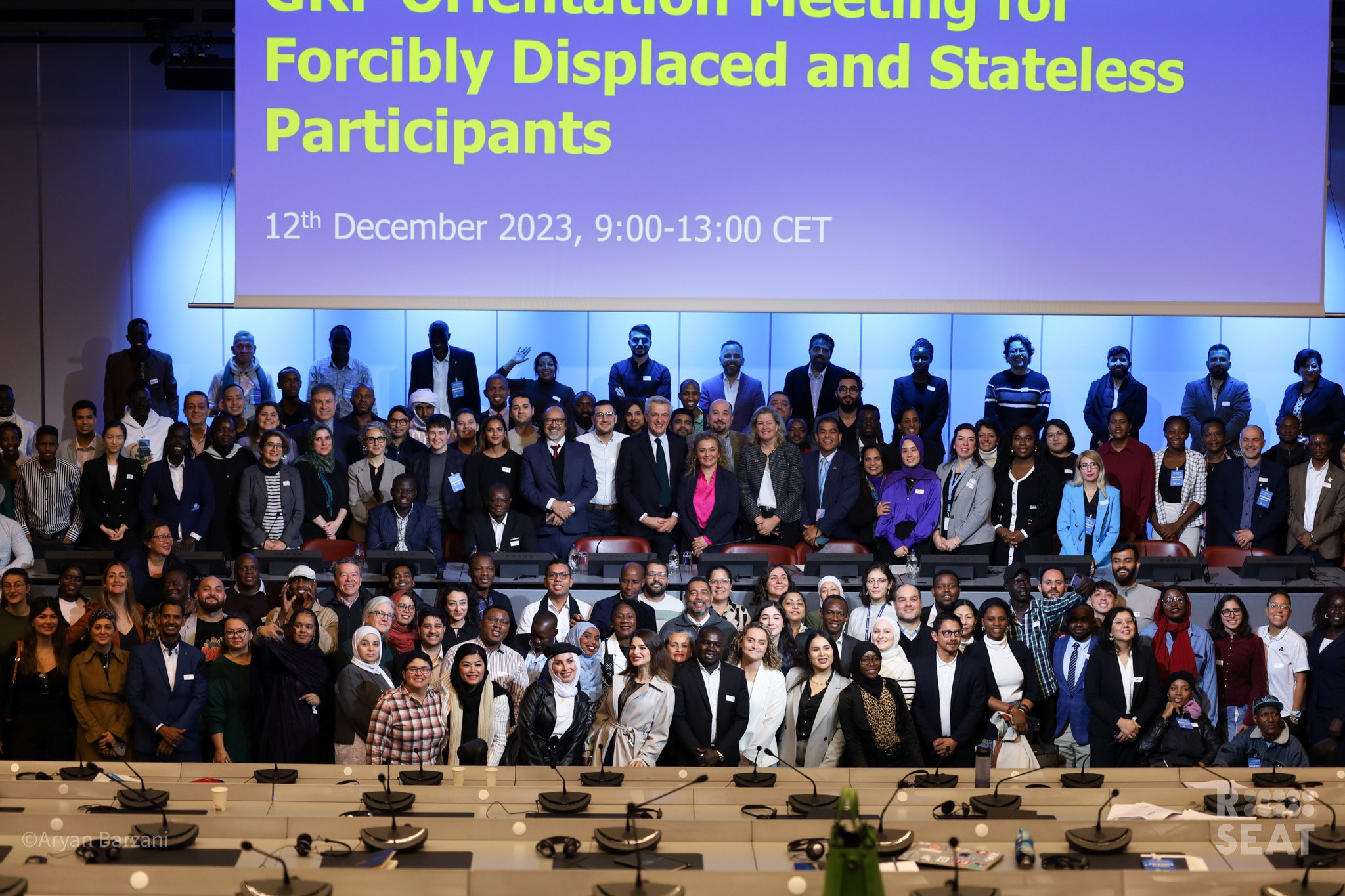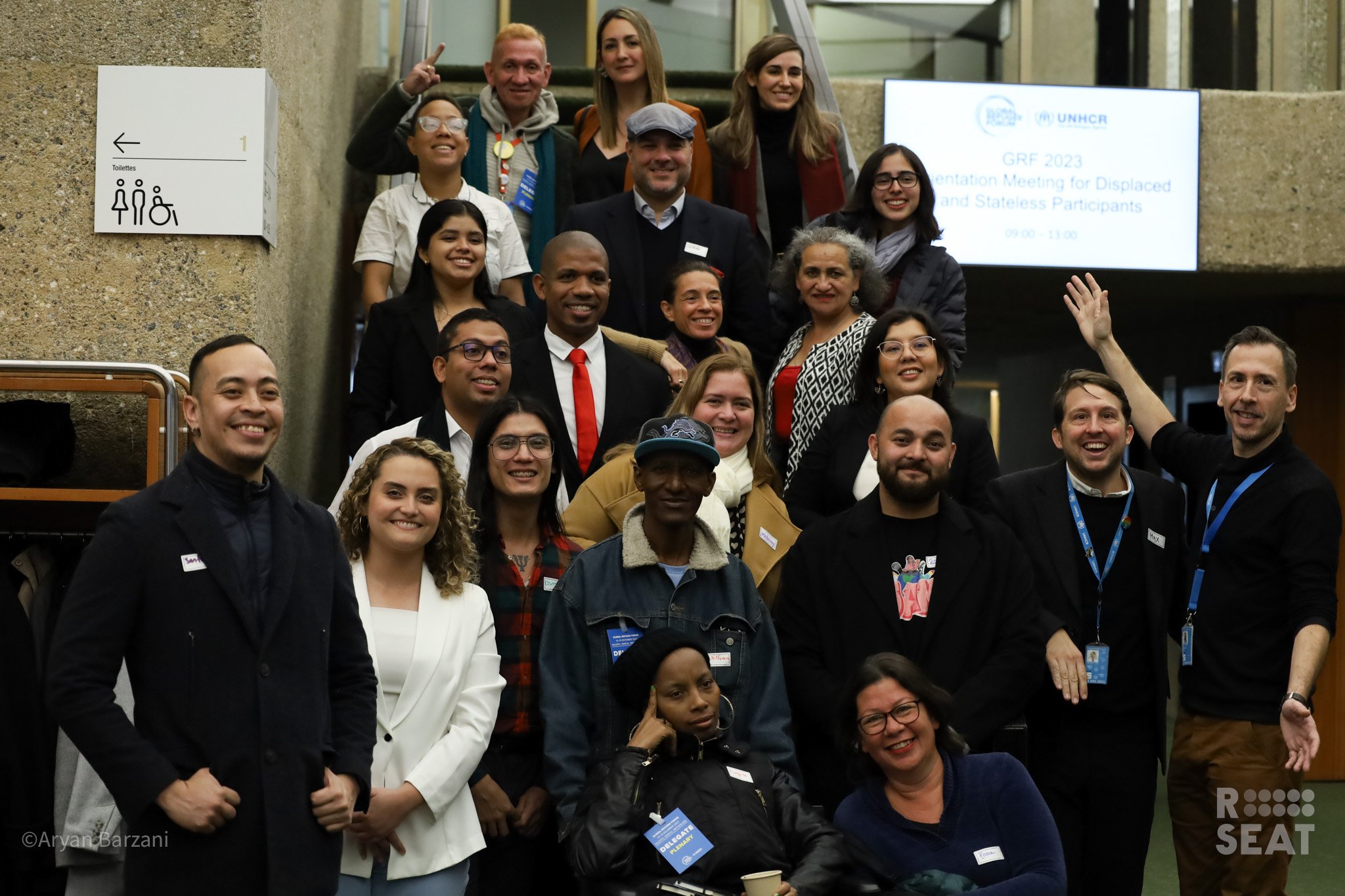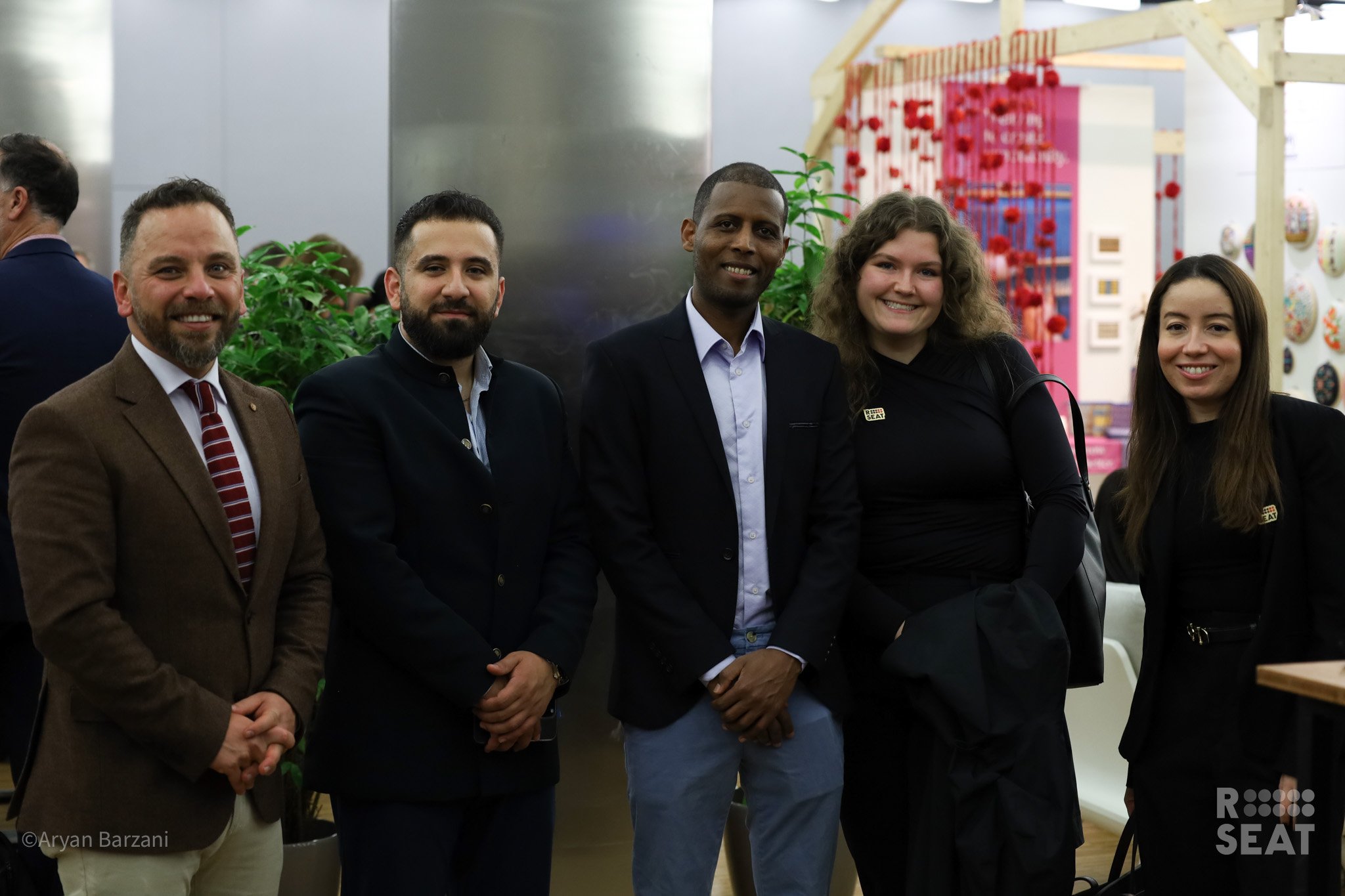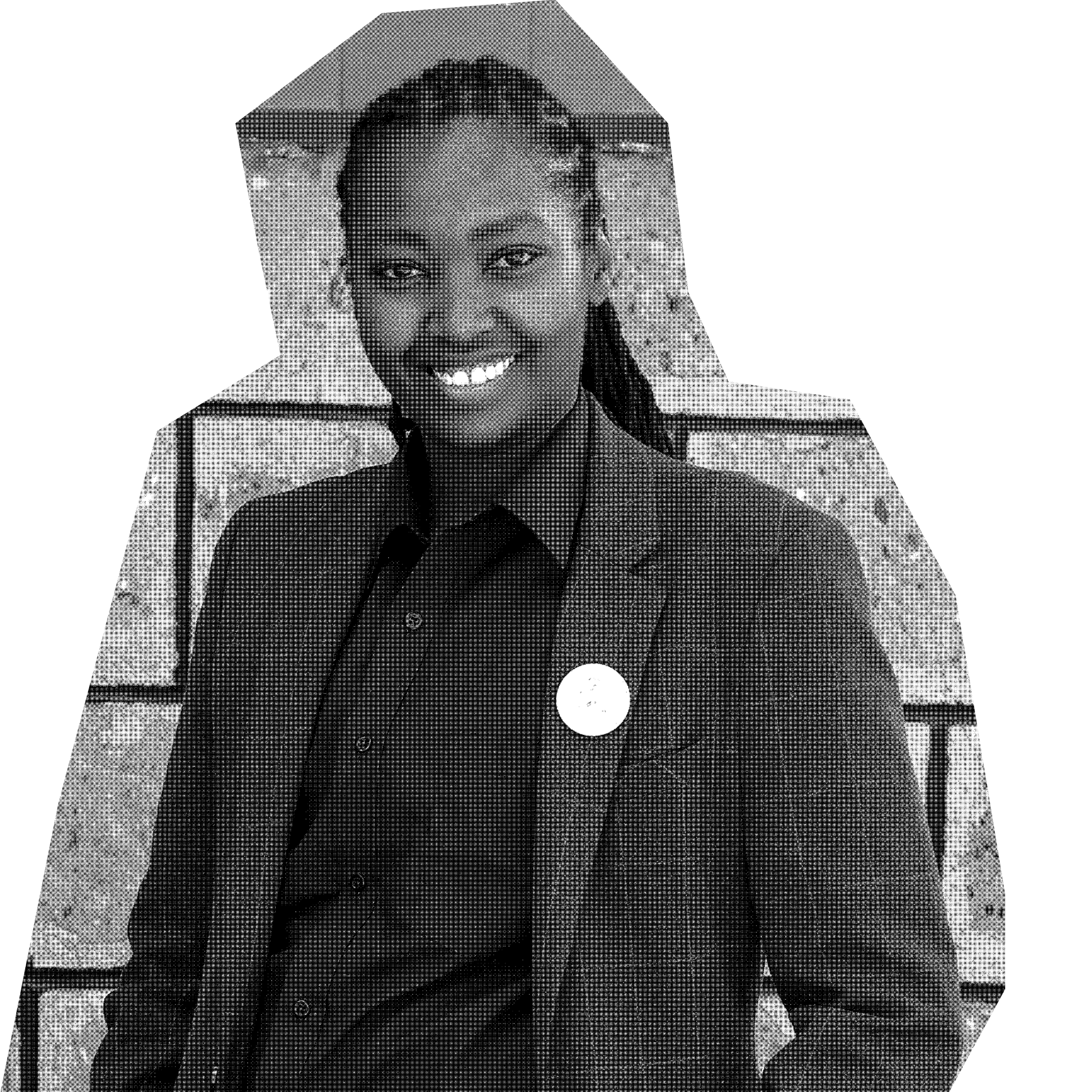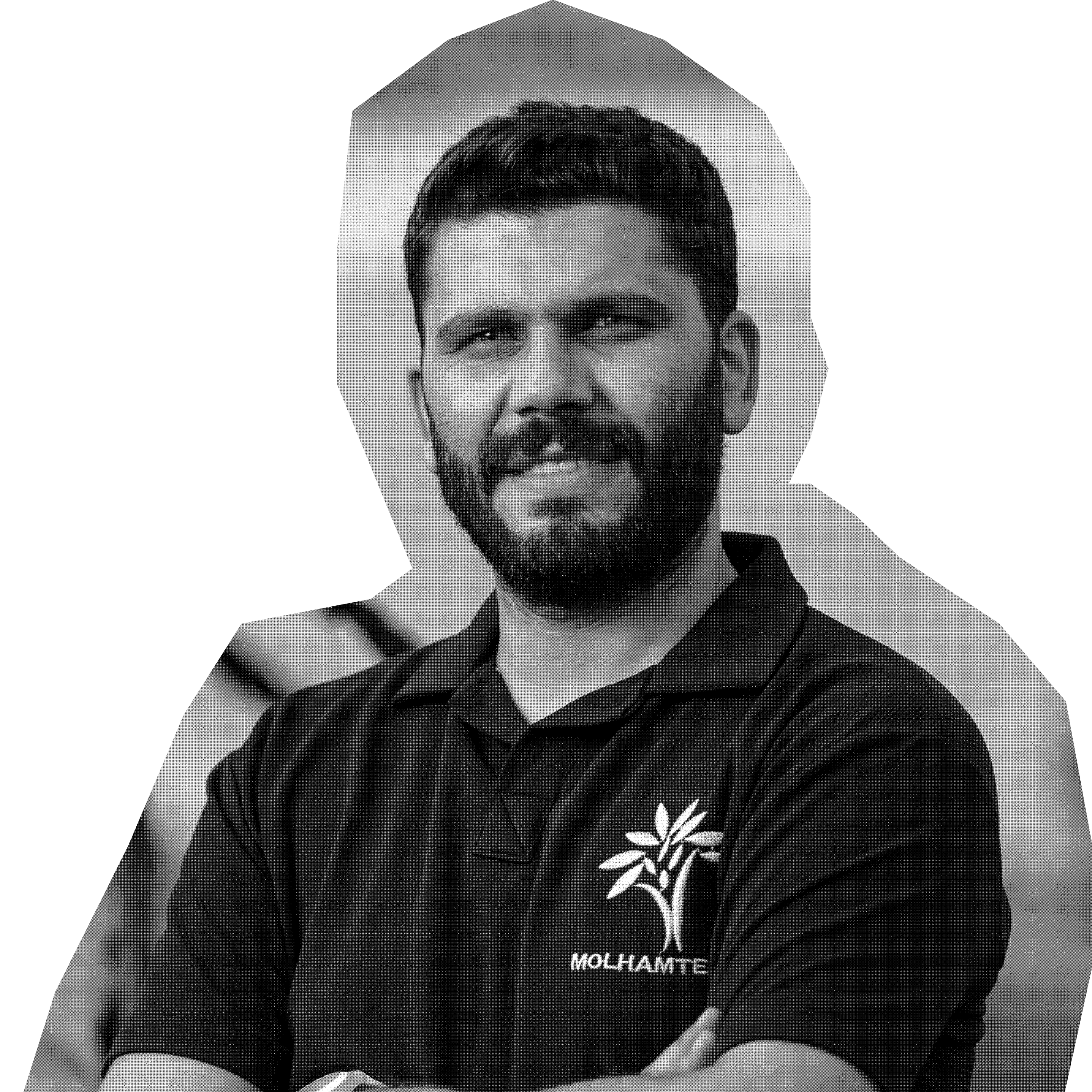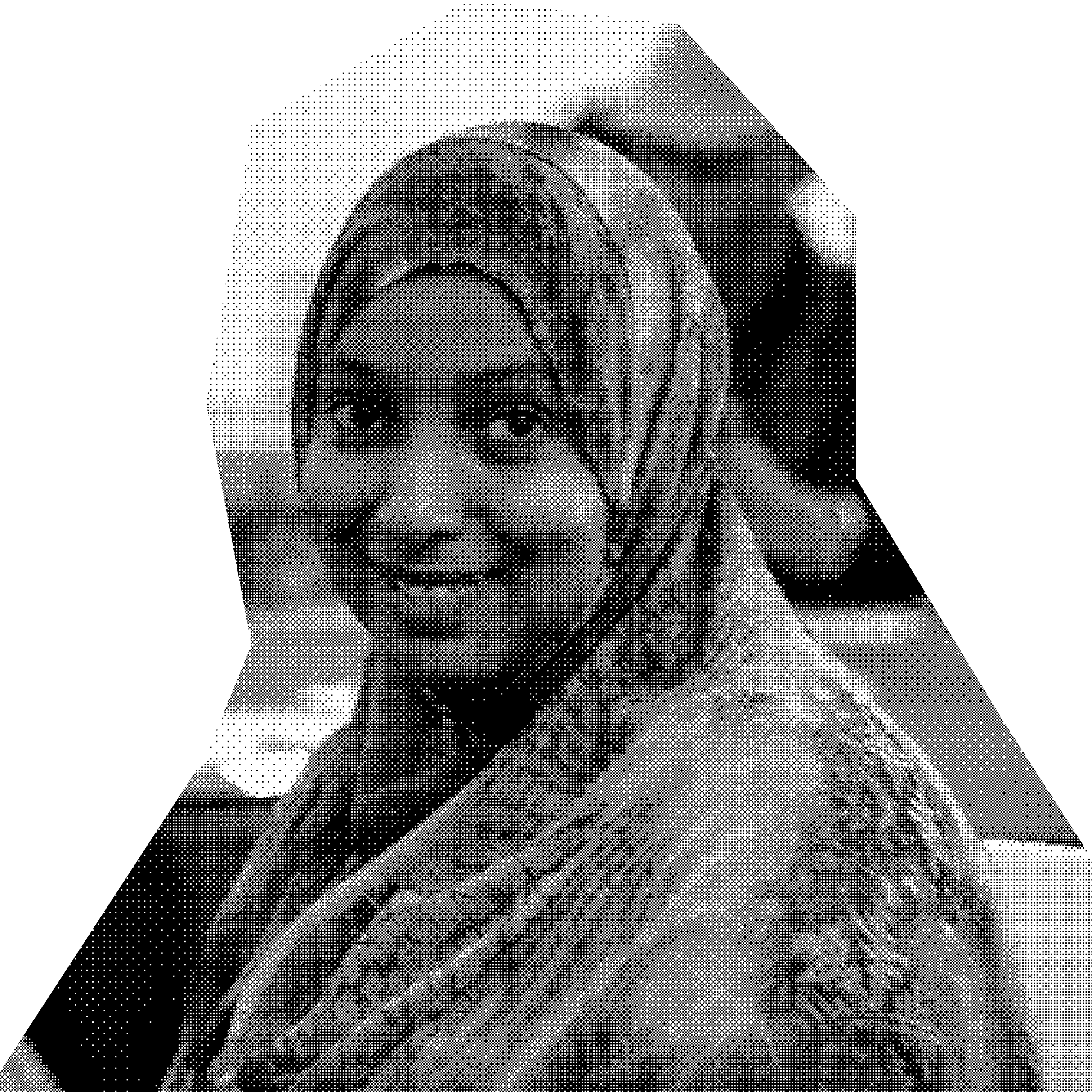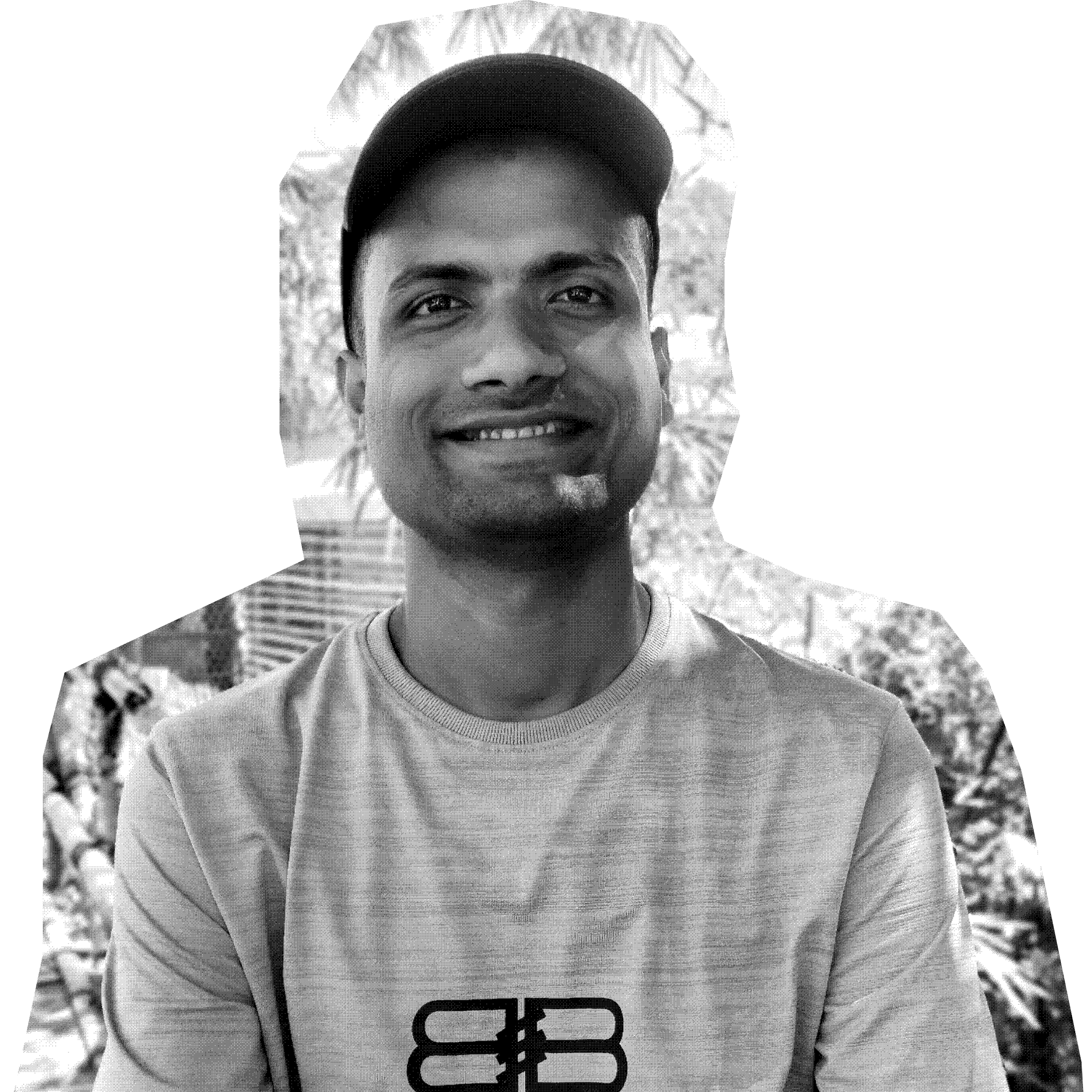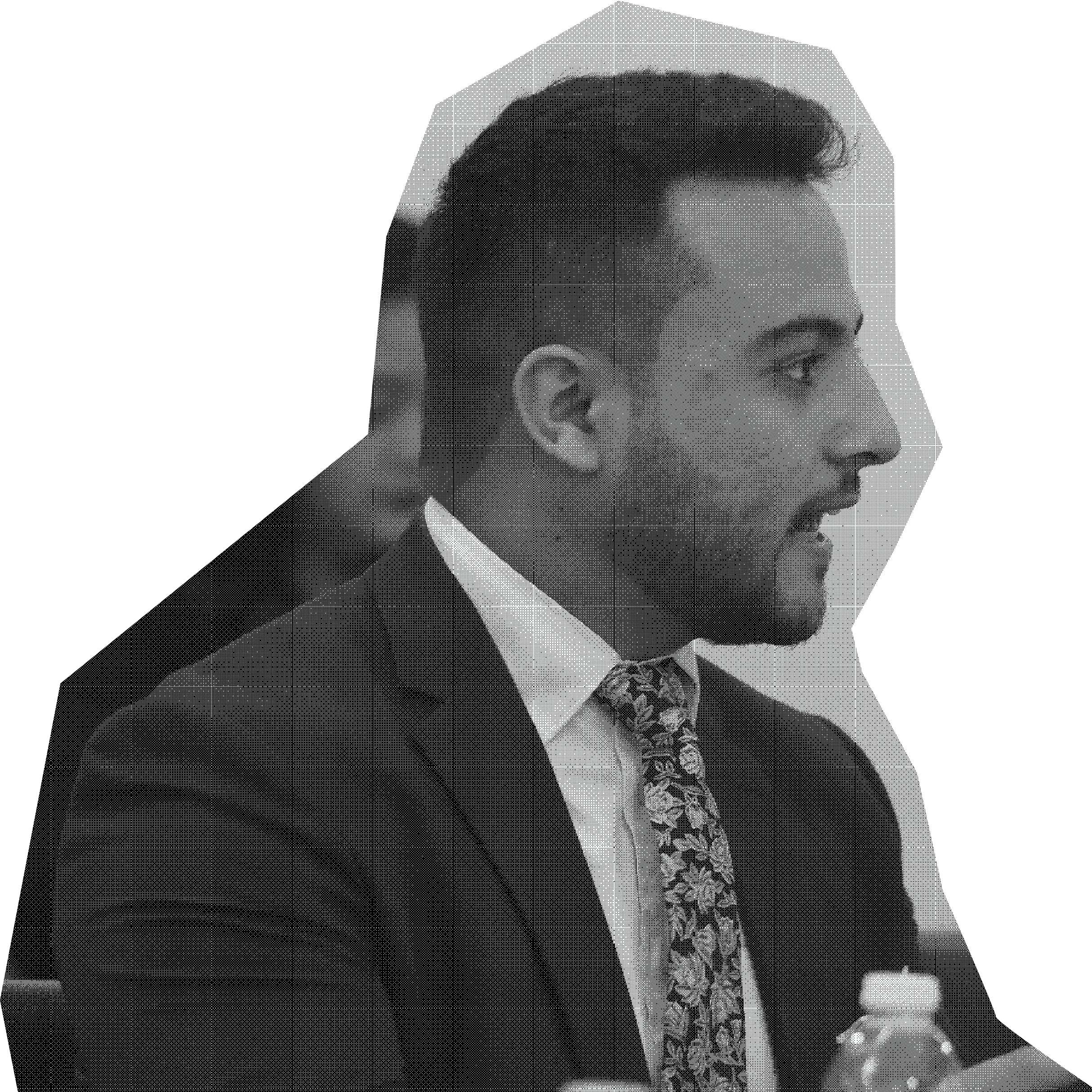Global Refugee Forum 2023,
13-15 December
Global leaders are making decisions that affect the lives of all refugees.
World leaders are meeting to make decisions that will affect the lives of refugees. Refugees must be key actors in these decisions, not passive beneficiaries.
Eleven refugee leaders are sharing their recommendations and insights based on their experience working for the displaced communities they serve. R-SEAT is carrying their recommendations to the Global Refugee Forum, and their insights and advice resonate within every call to action we present.
Here are six topics that will be discussed at the Global Refugee Forum, and the refugee leaders' recommendations for action.
We could do more with your cooperation.
R-SEAT at the Global Refugee Forum, 2023
Hear from Refugee Leaders
Explore our thematic areas:
A Better Future
Governments could do more to create equal access and opportunities so that refugees are doing more to contribute to making host countries stronger, more resilient and prosperous places for everyone.
Please help amplify the recommendations from refugee leaders by sharing their work.
Jobs and Livelihoods
Jobs are key to self-sufficiency. Governments could do more to enable work opportunities, provide training, recognise experience and credentials, and open access to global job markets.
Build Refugees Hope
Uganda
“The land we now call home offers a glimmer of hope for refugees.”
Innocent Niyonzima Hitimana, Executive Director
Build Refugees Hope empowers refugees through vocational training, food production, and social protection programs. It enhances self-reliance, promotes peaceful coexistence, and fosters economic and social resilience. Our innovative solutions to resource access improves refugees' lives and supports integration into local economies.
We recommend :
States could do more to back refugee farmers with microfinance, transparent land acquisition, support for entrepreneurship, and access to global and local markets.
This will boost production, benefit refugees and host communities, enhance global food security, and with additional resources, promote self-sufficiency and economic growth.
Apoyo a Migrantes Venezolanos AC
Mexico
“Displaced communities face many barriers to integration and self-sufficiency, including xenophobia, lack of documentation, misinformation, and unfamiliarity with their rights.”
Lizbeth Guerrero, Director and Co-Founder
Apoyo a Migrantes Venezolanos AC provides crucial assistance, including guidance on legal matters and employment, to thousands, helping them obtain refugee status, access rights, and integrate economically.
They focus on empowering refugees to understand and defend their rights, and work on sensitising employers and officials to the realities and challenges faced by refugees.
We recommend :
States could do more to enforce fair and inclusive employment practices, ensuring access to jobs, especially for refugees over 45 years old.
Host countries that provide opportunities for refugees benefit from their diverse skills and experiences, leading to significant intercultural enrichment.
Malaysia
“It hurts to have skills and not be able to use them.”
Omar Alkhammash, Deputy Director and Co-Founder
In many countries refugees don’t have the right to work. Refugees can be arrested or end up in detention for days, months or even years. Geutanyoe Foundation offers legal awareness workshops, runs a hotline, and assists vulnerable refugees through referrals. They've successfully delivered emergency packages to thousands and facilitated medical treatment for Rohingya refugees.
We recommend :
States could do more to support refugees to work and live independently with dignity. The more rights we give refugees the less they burden society. With work rights, refugees can be valuable contributors to long-term, sustainable socio-economic development.
Health
Good health is essential for self-sufficiency. Governments could do more to remove barriers to access, due to cost and identification, and do more to support mental health and disabilities related to forced migration.
Molham
Volunteering Team
Global
“We see firsthand the health challenges refugees face when host nations lack capacity or exhibit reluctance in providing essential health services.”
Khaled Abdulwahed, Administrative Manager and Community Leader
Molham specialises in providing comprehensive healthcare services to refugees. Operating across several countries, the team focuses on delivering essential medical care through various health-centric projects. These include the operation of neurosurgery rooms, dental clinics, and physiotherapy centres, catering to the diverse medical needs of displaced communities. Molham addresses critical health issues by securing medicines, covering treatment costs, and offering basic medical services for free. Their efforts ensure access to necessary medical treatments, improve refugees' health and improve healthcare conditions in the regions they serve.
We recommend :
States could do more to collaborate, dismantle barriers, and prioritise refugees' health needs, especially critical medical cases. Streamlined travel for specialised medical attention, inclusive policies, and involving refugees in decision-making are crucial steps. We envision global solidarity ensuring a healthier, more equitable future for all.
“It has been a tough battle not having ongoing support, yet we provide many health services to vulnerable refugees who face multiple barriers to accessing healthcare.”
Daniel Regalado, Co-founder and Director
ASOCIACIÓN VENEZUELA EN ECUADOR aims to promote health and prevention for refugees, aspiring to be an integral part of the national health system, guiding refugees on their rights and healthcare access. The association focuses on rights advocacy, policy influence in migration, and promoting regular inclusion in line with Ecuador's laws. They offer comprehensive medical, legal and migration services to over 1,500 monthly displaced people. The organisation also engages in immediate problem-solving, personalised guidance, and liaising with municipal, provincial, and national institutions to ensure dignified healthcare for refugees. They aim to work towards social and economic inclusion, making the economic and cultural contributions of refugees significant and beneficial to Ecuador.
We recommend :
States could do more to collaborate with refugee organisations and establish efficient practices to mobilise refugees with professional healthcare experience. Leveraging these skills can elevate healthcare standards and enhance the bond between refugees and host communities.
Age, gender and diversity
Refugees already experience discrimination that hinders resettlement and self-sufficiency. Governments could do more to ensure age, gender, and LGBTQI+ prejudices are not barriers to living with dignity in host countries.
“Refugee women are not objects to be toyed with; they are valuable contributors to society.”
Ayan Mohamud Yusuf, Project Manager and Co-founder
Tawakal Youth Organization champions the rights of refugees, focusing on women and girls. Tawakal works to empower these vulnerable groups through gender-sensitive programmes, community engagement, education, healthcare, and economic opportunities. They create safe spaces for support, counsel, and protection against gender-based violence. Tawakal's efforts include community engagement, support services, and partnerships to overcome barriers. With more resources, they aim to expand educational and healthcare services and strengthen economic empowerment for refugee women, promoting gender equality and social inclusion.
We recommend :
States can do more to ensure every woman thrives. We urge states to implement policies promoting meaningful participation of refugee women in decision-making, thereby creating programs ensuring their access to education, healthcare, and economic inclusion. This isn't just about rights; it's about unlocking untapped potential that enriches our global society.
“Over 30 African countries criminalise same-sex relations. This harsh reality leaves countless LGBTIQ+ individuals in dire need of protection. Yet, safe havens are scarce.”
Abby Kariuki, Programs Director
Community Support Initiative for Refugees (CoSIR) is an LGBTQI-GNC refugee-led organisation and provides sexual health and mental health referrals, livelihood opportunities, advocacy, and emergency shelter for LGBTQI-GNC refugees. CoSIR, pioneering in refugee-led efforts, also focuses on the inclusion and participation of LGBTQI-GNC individuals in urban settings. They offer capacity-building programs, address violence against LGBTQI+ communities, and lead advocacy for policy changes. The organisation has made strides in providing mental health support, HIV/STI services, skills training, and legal aid through community paralegals and peer navigators. Despite challenges, CoSIR remains a key player in promoting LGBTQI+ refugee rights and well-being.
We recommend :
Nations states can do more to broaden opportunities for these vulnerable refugees. States should support programs preventing refugee homelessness, and ensure education access tailored to LGBTIQ+ needs, serving as a stepping stone towards generating economic resources. The ripple effect of such initiatives could be profound, fostering a more inclusive, prosperous society.
Education
Education is a pathway to resettlement and social mobility. Governments could do more to remove barriers to accessing education in host countries and provide more opportunities for vocational training.
Global Rohingya Future
Bangladesh
“Ending the education deprivation for refugees is essential in addressing global forced displacement.”
Mohammed Rezuwan, Founder and CEO
Global Rohingya Future focuses on empowering the Rohingya community through education. The organisation addresses educational gaps among Rohingya refugees in Cox's Bazaar, the world's largest refugee camp, by providing access to formal education aligning with the Myanmar national curriculum. With ten paid and thirty volunteer teachers, they have supported 5,000 children, helping them pursue education despite living in a camp. Their efforts foster hope and empower refugees to use education as a weapon against injustice. Global Rohingya Future emphasizes the importance of equal access to education for refugee children at international forums, advocating for scholarships and collaborative efforts with Refugee-Led Organizations (RLOs) to support the Rohingya community's self-reliance and talent development.
We recommend :
States could do more to ensure no refugee children are excluded from school, and to expand academic opportunities for refugees residing in camps. This aids in fostering better career prospects, which will not only alleviate their suffering but also paves the way for a hopeful and prosperous future.
Jordan
“Greater resources for refugee vocational training could lead to long-term solutions for refugee independence from humanitarian assistance.”
Mubarak Ricky, Educator, Community Organiser and Advocate
Sawiyan for Community Development focuses on empowering marginalized refugee communities. Established in 2018, Sawiyan advocates for community leadership and supports leaders in project creation for their communities. It fosters growth in respectful, anti-colonial, and anti-racist spaces, nurturing community-led initiatives like a volunteer-run English language programme. Sawiyan advocates for refugees, conducts research, and creates alternative educational centers. With more resources, Sawiyan aims to establish community centers for educational and recreational activities and provide access to higher or vocational education, enhancing refugees' independence and long-term self-reliance.
We recommend :
States could do more to remove the financial, language, and cultural barriers that prevent refugee children and youth from enrolling and participating in formal education systems. We urge states to take refugee-led informal education initiatives seriously and recognise refugees as givers to their communities, host states and the overall international community.
Refugees need digital access and literacy to pursue education and livelihoods. Governments could do more to remove barriers to access, provide literacy, and leverage connectivity to enhance services and rights.
Digital and connectivity
Molham
Volunteering Team
Global
“Technology offers many avenues for refugees to rebuild their lives.”
Khaled Abdulwahed, Administrative Manager and Community Leader
Molham Volunteering Team emphasizes enhancing digital access and literacy among refugees. They tackle the challenges of limited internet connectivity in camps and remote areas by providing essential digital devices and introducing alternative energy sources for online access. Molham's educational initiatives, particularly through "Molham School," focus on digital skills training and safe internet usage, aiming to bridge the digital divide. Their efforts extend to online healthcare consultations and telehealth services, leveraging technology to offer medical and mental health support remotely. With improved digital connectivity, Molham aims to expand its outreach, data analysis, and global advocacy for refugee causes.
We recommend :
States could do more to strengthen digital infrastructure in refugee camps and settlements, enabling them to access education, employment and healthcare opportunities remotely.
Multi Aid Programs (MAPs)
Lebanon
“Refugees often face digital barriers that limit their opportunities now and for the future.”
Dr. Fadi Alhalabi, Director
Multi Aid Programs (MAPs) focuses on educational and digital challenges faced by refugees. MAPs provides innovative STEM curricula and Information and Communication Technology courses, enhancing digital literacy and access to technology. MAPs also champions STEM education and robotics, with its “Team Hope” achieving significant success in international competitions. MAPs' initiatives aim to prepare refugees for a technologically integrated future, offering cost-free training aligned with labour market demands, including digital marketing and web development. Enhanced digital access has enabled refugees to engage in online education and remote work, improving their lives significantly. With more resources, MAPs would expand its STEM education and digital connectivity initiatives, further empowering refugees in Lebanon.
We recommend :
States could do more to support innovative approaches and technological integration. We recommend that states incorporate cutting-edge technology into the assistance provided to refugees. This way, refugees themselves can create local integration programs, connect refugees with other parts of the world, and improve their living conditions in the short and long term.
Third country solutions
Governments could do more to increase resettlement, and complimentary pathways based on skills, background or other criteria can help.











